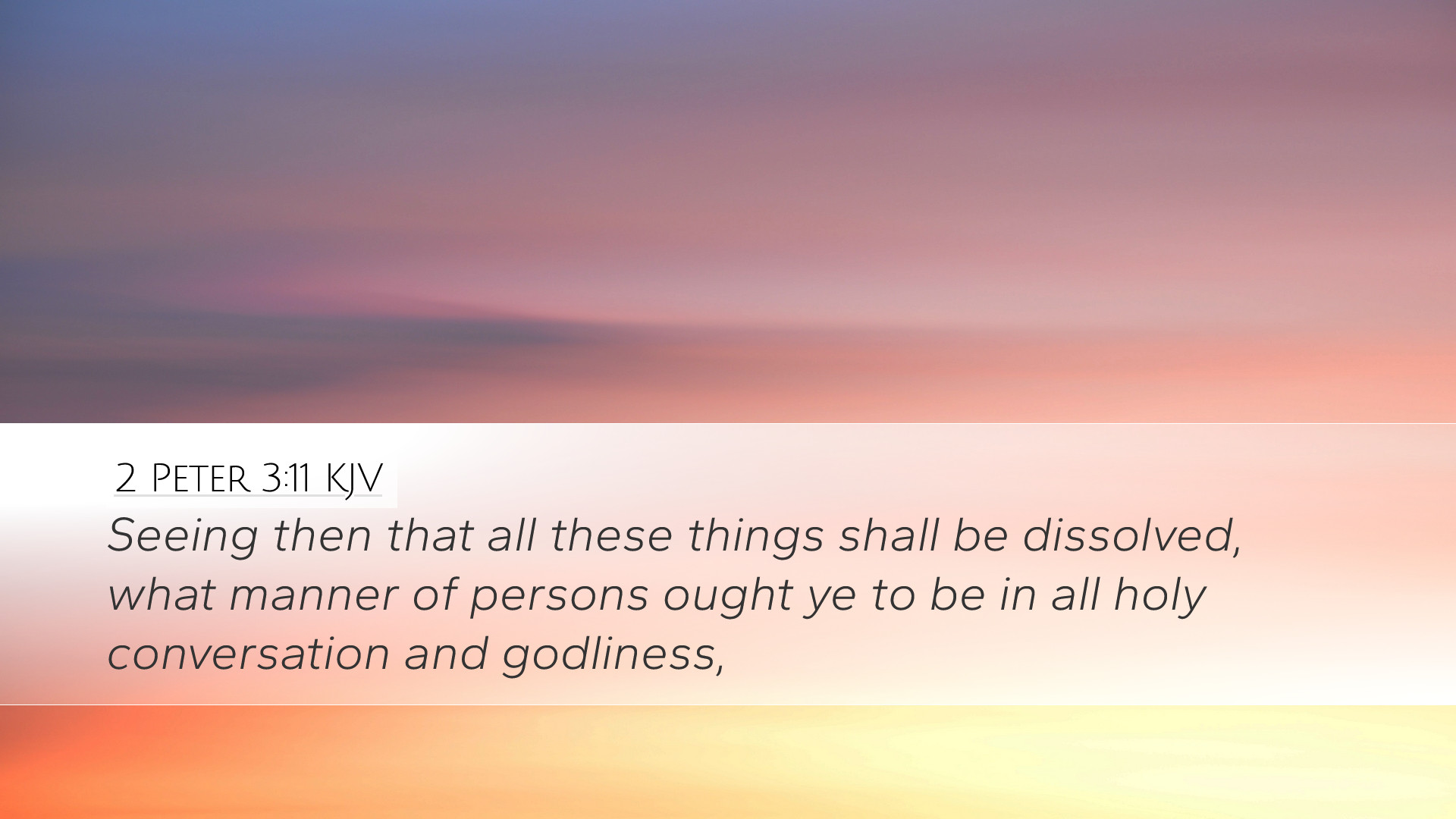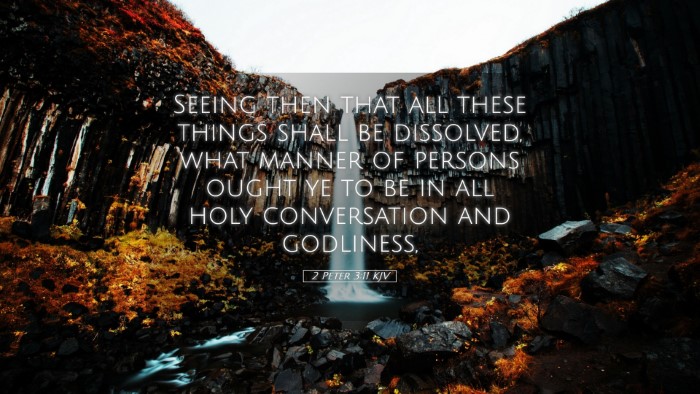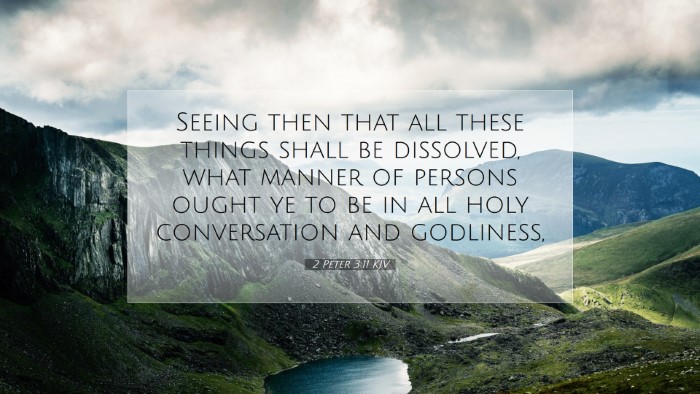Old Testament
Genesis Exodus Leviticus Numbers Deuteronomy Joshua Judges Ruth 1 Samuel 2 Samuel 1 Kings 2 Kings 1 Chronicles 2 Chronicles Ezra Nehemiah Esther Job Psalms Proverbs Ecclesiastes Song of Solomon Isaiah Jeremiah Lamentations Ezekiel Daniel Hosea Joel Amos Obadiah Jonah Micah Nahum Habakkuk Zephaniah Haggai Zechariah Malachi2 Peter 3:11
2 Peter 3:11 KJV
Seeing then that all these things shall be dissolved, what manner of persons ought ye to be in all holy conversation and godliness,
2 Peter 3:11 Bible Commentary
Commentary on 2 Peter 3:11
Bible Verse: “Seeing then that all these things shall be dissolved, what manner of persons ought ye to be in all holy conversation and godliness?”
Introduction
The Apostle Peter, in this second epistle, addresses the concerns of believers regarding the promise of Christ’s return and the final judgment. In 2 Peter 3:11, he presents a rhetorical question that serves as both a warning and an encouragement to live a life that reflects the imminent reality of God's judgment. This commentary synthesizes insights from prominent public domain scholars such as Matthew Henry, Albert Barnes, and Adam Clarke.
Contextual Background
Peter's epistle is written to counteract the false teachings and the scoffers who doubt the second coming of Christ. The opening verses of the chapter discuss the certainty of prophetic words and the day of the Lord, where the heavens and the earth will be destroyed by fire. This context intensifies the gravity of verse 11, prompting Peter to challenge believers about their conduct in light of the impending dissolution of the world.
The Nature of the Dissolution
Matthew Henry emphasizes that the "dissolution" refers to the complete and thorough destruction of the current order. He underscores that these events are not merely metaphorical but depict a real divine intervention that will come to pass. Albert Barnes supports this by acknowledging that the heavens and earth, which God created, will one day be melted away, leading to a renewed creation.
The Implication for Believers’ Conduct
In light of this impending destruction, Peter asks, "What manner of persons ought ye to be?" This is a critical reflection on the ethical implications of eschatological truths.
- Holiness: As Peter suggests, believers should embody holiness in their daily lives. Adam Clarke notes that this holiness is not merely the absence of sin but an active engagement in a life that glorifies God.
- Conversation and Conduct: The term “conversation” in the KJV emphasizes lifestyle or behavior. Peter calls followers of Christ to exhibit behaviors that are consistent with their faith, recognizing the eternal consequences of their actions.
- Godliness: Peter links holy conduct to godliness, indicating an intrinsic relationship between one's state of being and their practice. Henry elaborates that true godliness is a practical expression of one's faith and reflects reverence towards God.
The Eschatological Urgency
The urgency of Peter’s exhortation cannot be overstated. Both Barnes and Clarke highlight the significance of being aware of the times we live in. Peter’s readers are encouraged to see the world not merely as a temporary home but as a place preparing for an ultimate reckoning. The knowledge of the dissolution of the world should lead Christians to live in a state of moral alertness.
Practical Applications for Today
This verse is not merely a theological assertion but carries profound practical applications for contemporary believers:
- Reflection on Lifestyle: Christians should periodically evaluate their conduct. Living in a manner that anticipates the Lord’s return involves setting aside distractions and focusing on spiritual growth.
- Community Responsibility: Believers are called to promote holiness within the church community as an encouragement for collective godliness.
- Hope and Motivation: The anticipation of Christ's return should act as a motivator for evangelism and purity of life, pushing against the apathy often found in contemporary society.
Theological Reflection
Matthew Henry notes that the assurance of judgment provides a counterbalance to the human tendency towards libertinism. Peter's teaching promotes both a healthy fear of God and an inspiring hope for eternal life. In contrast, Albert Barnes reminds us of the grace found in living according to God's will, suggesting that a godly life is rewarded in the eternal kingdom.
Conclusion
In conclusion, 2 Peter 3:11 reminds believers of the urgency in living a holy, godly life, true to their calling as children of God. The anticipation of the coming judgment serves not only as a warning but as an invitation to embrace a vibrant faith characterized by righteousness and holy conduct. As we await the new heavens and new earth, may we strive to reflect Christ in all we do.


